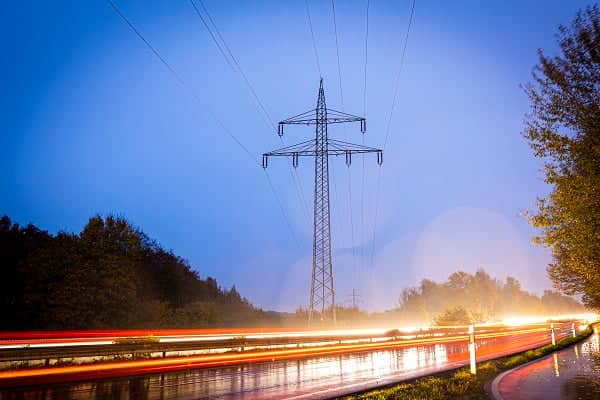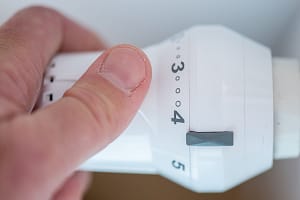With energy prices still on the rise, more and more Brits are worrying about energy usage around the home and are looking for ways to save money.
Research commissioned by leading home appliance brand, AEG, has discovered that 72% of people admit to being more aware of wasting energy in the home since costs have increased, with 93% making an effort to reduce the amount of energy they use.
The research also highlights that when it comes to smarter ways of using our appliances, many of us don’t know how to use some of the key programmes to maximise energy efficiency and struggle to understand the energy ratings of appliances such as dishwashers, tumble dryers and washer dryers.
To help one family understand how to better use their appliances, AEG partnered with Newson Consultancy to commission an experiment that reveals how much money can be saved by changing household habits and using appliances more efficiently. Looking into the routine of an average family of four in the UK, the energy saving experiment scrutinised the Green family, from Leyton, and their habits coupled with energy usage. After one month of studying the appliance usage, AEG switched out the existing appliances for newer, more energy efficient models coupled with the implementation of energy saving habits shared by an AEG expert, such as how to properly stack the dishwasher to avoid wasting energy and water, and which programmes are the most energy efficient.
The latest kitchen appliances, integrated with these updated behaviours, meant that the family saved 30% of energy compared to their previous appliances. By having newer, more energy efficient appliances and the knowhow of using them to their potential, the family will save a total of £264.25 across the course of a year, which across an average appliance lifespan of 7 years equates to a total saving of nearly £2,000.
Dr Martha Newson, Associate Professor of Psychology and Founder of Newson Consultancy, said, “With a topic that has been so prevalent in the news, we wanted to work with a family whose habits could represent the majority of households across the nation, so that we could share tips that would work for us all.
“As far as I know, this is the first experiment of its kind since the cost-of-living crisis hit and was a big undertaking. We measured five major domestic appliances before refitting the entire kitchen for the second phase.
“However, this research is absolutely not about asking people to buy brand new appliances if they aren’t in the market. This is about education: helping us to understand what to look for when we are in the market for new appliances, but also helping all of us to get the best out of our current appliances. This experiment shows that the ideal thing is to upgrade appliances and change habits, but even without a full new suite of new products people can do more – particularly using the correct eco setting, always filling up the dishwasher, and washing at the most energy efficient temperature.”
During the two-month experiment, the AEG Twin-Tech fridge-freezer was the star of the show, set to save the family £79.42 a year as it used 50% less energy across the month than the family’s previous fridge freezer.
Luke Harding, Managing Director UK & Ireland, at AEG comments on the experiment, “This experiment shows that changing habits and understanding appliance energy ratings will effectively help lessen costs and reduce energy consumption. Unsurprisingly, the washing machine was the most frequently used appliance. During the experiment and at peak use the AEG 7000 ProSteam washing machine used 33% less energy than the family’s previous appliance. On the day when the family used the washing machine least, it cost just 7p per wash compared to the 23p cost of using the older appliance – a fantastic result!
“Interestingly, 42% of those we polled don’t use the eco setting on their dishwashers, as they prefer alternative cycles. However, whether using your dishwasher, washing machine or even tumble dryer, you can maximise efficiency by choosing the Eco feature. These are typically longer than the average cycle, so while it may seem counter intuitive to leave your wash on for longer, it is the most energy efficient option as shorter cycles draw on more energy to get the job done quicker.”
The Green’s old Condenser Tumble Dryer was the biggest culprit of energy usage during the first phase of the experiment, costing £25.68 in the first month vs. just £15.32 in the second with the AEG 8000 Heat Pump Tumble Dryer. Across the 7-year life span of the appliance, this will save the family £944.86.
The AEG Satellite Clean Dishwasher and Surround Cook Double Oven appliances also used less energy than the old appliances, reducing consumption by 26% (£2.40) and 40% (£3.90) respectively across the month (a saving of £31.31 and £50.86 over a year). Two thirds (63%) of Brits admit they don’t wait until the dishwasher is full before they put it on. However, AEG highlights that a full (yet not overloaded) dishwasher is key in order to maximise water usage and energy.
Iain Wareham, Head of Product Line Care at AEG comments: “With energy prices rising significantly[1] in the last year, families have really felt the financial pressure, yet 40% still believe that buying new appliances won’t affect their energy usage. Our latest Care range has been designed with energy efficiency front of mind, and for those in the market for a new appliance, as well as looking to save money on energy usage, it could be time to upgrade.”
The brand-new range includes the 9000 Absolute Care Washing Machine (30% better than A Energy Rating), Washer Dryers and the 9000 Absolute Care Heat Pump Tumble Dryer (A+++ Energy Rated) and each appliance has a new design and new care features to help save energy around the home. The range also features innovative technology to keep clothes looking and feeling like new for longer, prolonging their lifespan, therefore saving you money and reducing negative impacts on the environment.






Leave a Comment